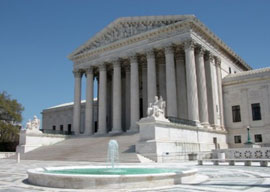
June 28, 2012

The court neither upheld nor invalidated Section 2B of the Arizona statute—which permits a police inquiry of the immigration status of those arrested for non-immigration offenses—because the court found that, just as when the police stop a person for a violation of state or local law they may check their computers for outstanding warrants for the person they have stopped, so, too, they may check their computers for the person’s immigration status.
Shortly after the opinion came down, the Obama administration announced that it will cease providing Arizona police with the immigration status of persons in that state, and it will not detain anyone arrested by Arizona police for immigration violations unless those violations rise to the level of a felony, which undocumented presence in the U.S. is not. Thus, this constitutional rebuke to Arizona has become a personal license for the president. He now has demonstrated that he will not faithfully enforce federal law as the Constitution requires. He will only enforce the laws he agrees with.
So, since the Arizona police cannot arrest and incarcerate anyone for undocumented presence and since they cannot deliver anyone so arrested to the feds, what legitimate governmental purpose will be served by what remains of Arizona’s law? None. But the police still will harass any dark-skinned person in Arizona that they please.
Have we lost sight of the perpetual tension between human freedom and human law? Either freedom is integral to our nature, as Thomas Jefferson wrote in the Declaration of Independence, or it comes from the government, as the president and the Supreme Court demonstrated they believe this week. If it is integral to our nature, no government can tell us with whom we may freely associate. If it comes from the government, we should abandon all hope, as the government will permit the exercise of only those freedoms that are not an obstacle to the contemporary exercise of its powers.